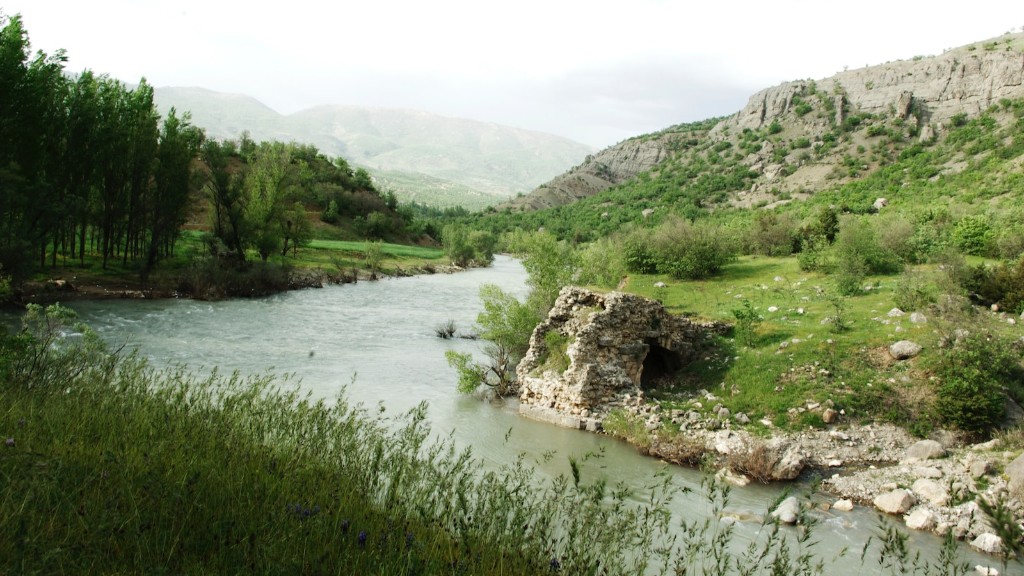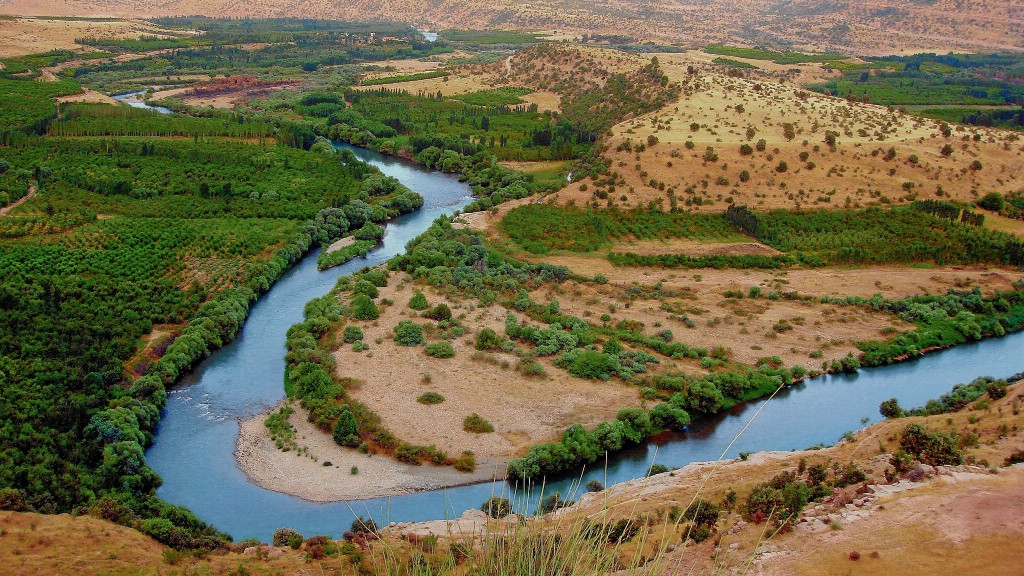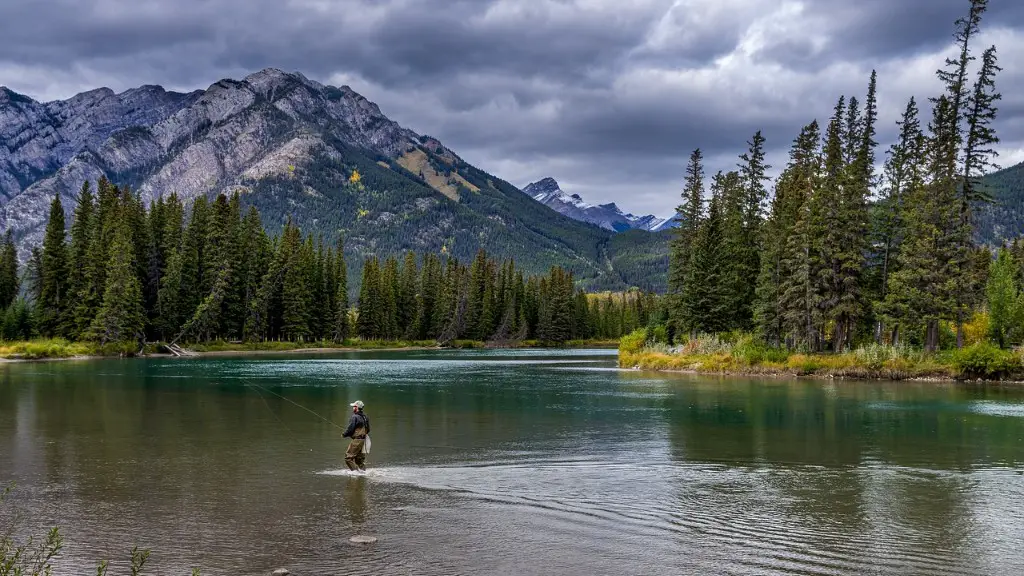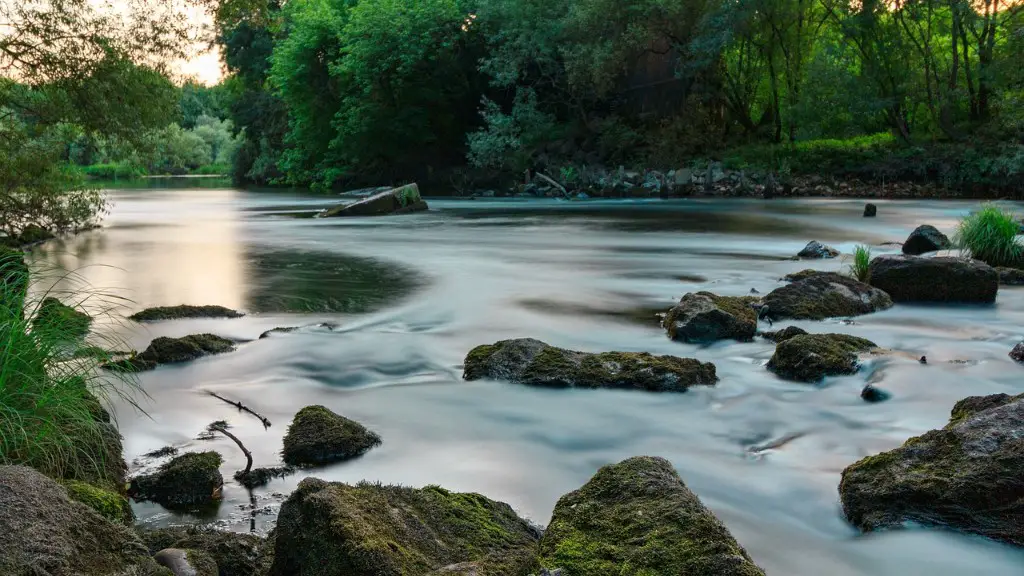The Mississippi River is one of the most popular fishing destinations in the country. Every year, millions of anglers visit the river to try their luck at catching a variety of fish. But can you actually eat the fish from the Mississippi River? The answer depends on several factors.
The most important factor in deciding whether you can eat fish from the Mississippi River is water quality. Unfortunately, the river has seen its fair share of pollution. Contamination from fertilizer and other chemicals have caused the water to become polluted in certain areas. Therefore, it is extremely important to do some research to make sure the water quality is safe before consuming any fish.
In addition to water quality, the type of fish you catch can also be a factor. Some species of fish may be more prone to contamination and could be dangerous to eat. Therefore, it is important to understand the different species of fish in the river before deciding to catch and eat any of them. Those who are unsure should consult with the local Department of Fisheries and Wildlife.
Anglers are also advised to research the local regulations regarding the possession and consumption of fish from the Mississippi River. Depending on the state and local county, there may be specific regulations regarding the size and quantity of fish that can be consumed. Understanding the regulations can ensure anglers abide by the rules and don’t break any laws in the process.
Fish from the Mississippi River can be eaten as a delicious meal. However, doing so must be done responsibly. It is important to take the necessary precautions to make sure you consume only safe, healthy fish. It may be a good idea to talk to a professional or to do some research before setting out to fish. Doing so can ensure it’s a safe and enjoyable experience for all.
How to Maintain Quality of the Water
In order to make sure anglers can safely enjoy catching and eating fish from the Mississippi River, it is essential that water quality is maintained. The government has put in place a number of laws and regulations to ensure that the river remains clean. Some of the key regulations include limiting activities that generate pollutants, creating buffer zones for sensitive areas and developing fertilizer runoff control plans.
The EPA has developed the Total Maximum Daily Load (TMDL) restrictions to identify the amount of pollutants allowed in the Mississippi River. The limits are based on what is necessary to protect aquatic life, drinking water sources and recreation. In order to make sure the river remains clean and safe, the government monitors and enforces the TMDL restrictions.
There are also efforts being made by local communities, organizations and citizens to protect the Mississippi River. Groups like the Mississippi River Alliance and the Mississippi River Stewardship Program work to improve water quality and monitor the health of the river. Anglers can also join in on the efforts by volunteering their time, as well as by reducing their activities that may generate pollutants into the river.
Water quality is essential for the Mississippi River to remain a safe and enjoyable destination for anglers. If everyone works together to ensure compliance with regulations, the river can remain clean and anglers can enjoy their time out on the water.
Ethical Angling Practices
In addition to making sure the water quality is safe, anglers should also take care to practice ethical and safe angling practices. The most important rule is to never take more fish than you can eat or use for bait. It is also recommended that anglers only use barbless hooks, as this reduces the chances of harming the fish.
Respect for the environment is another important factor when it comes to ethical angling. Anglers should always practice the “leave no trace” rule, leaving the area exactly as they found it. This includes disposing of trash properly and not disturbing vegetation or wildlife. Anglers should also make sure to obtain all necessary permits and respect the local regulations.
Anglers should also be aware of the fishing limits set by the local Department of Fisheries and Wildlife. These limits help ensure the health of fish populations of the region. Furthermore, anglers should also be aware of the different sizes and seasons for each species of fish.
Ethical angling is an essential part of making sure the Mississippi River remains a great fishing destination. Anglers can do their part by following all of the local laws and regulations, practicing responsible fishing and also teaching ethical fishing practices to the next generation of anglers.
Health Benefits of Eating Fish from the Mississippi River
Eating fish from the Mississippi River can have some health benefits. Fish is a great source of protein and includes essential vitamins and minerals. Certain species of fish are also high in omega-3 fatty acids, which can help promote heart health. As long as anglers take the necessary steps to make sure the water quality is safe and the fish is prepared properly, it can be a healthy and delicious meal.
Anglers should also make sure to understand the local limits before they consume fish. There may be certain species of fish that are prohibited from consumption, so it is important to understand the regulations. It is also important to practice responsible catch and release, especially for species of fish that are still recovering from overfishing.
In addition to the health benefits, eating fish from the Mississippi River can also be an enjoyable experience. Anglers have the opportunity to eat the fruits of their labor and enjoy a meal that can be introduced to friends and family. There are a number of recipes available online that can turn a day of catching fish into a delicious meal.
Cons and a Final Thought
Although eating fish from the Mississippi River can be beneficial, there are also some cons to consider. The most important con is water quality. As mentioned previously, the river is affected by pollution, so it is essential to do proper research and make sure the water is safe before consuming any fish.
Another potential con is the introduction of non-native species. In recent years, some new species of fish have been introduced to the river. These species have the potential to disrupt the native population. Therefore, it is important to make sure the fish you are consuming is native to the river.
Overexploitation is also a concern for the Mississippi River. Anglers should take care to only take the fish they plan to use and to practice catch-and-release whenever possible. This will help ensure the populations remain strong and sustainable.
Eating fish from the Mississippi River can be a great way to enjoy the rewards of a day of fishing. However, it is essential to understand the local regulations, follow ethical angling practices and make sure the water quality is safe before consuming any of the fish.





